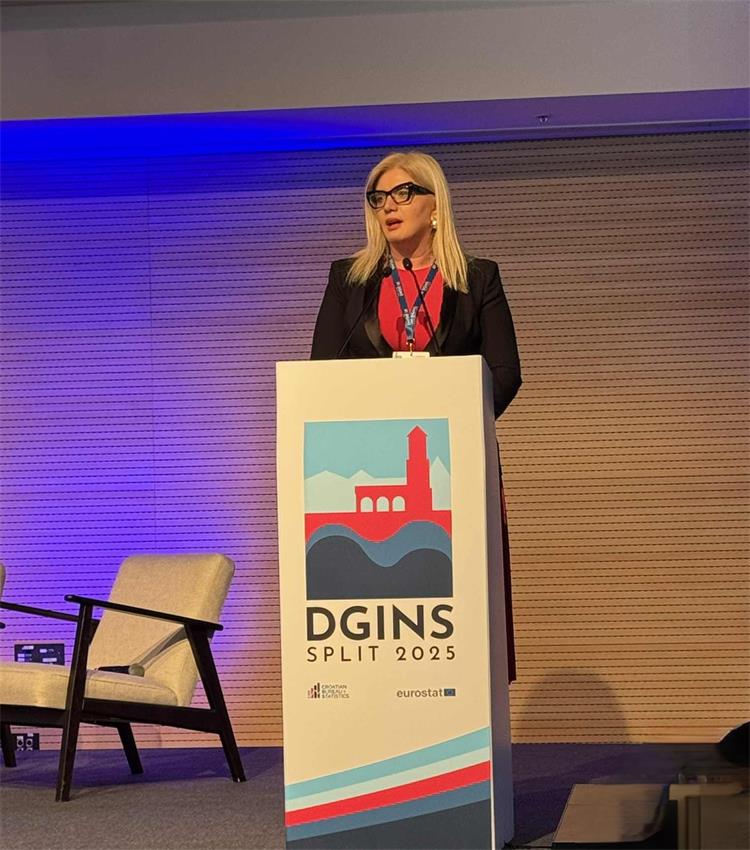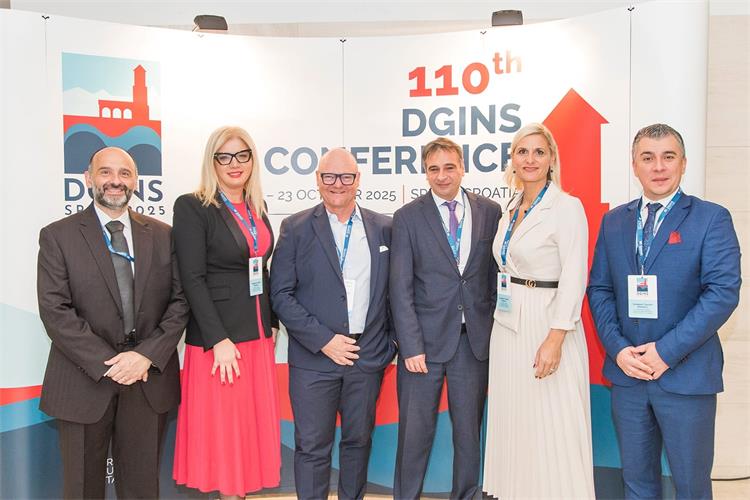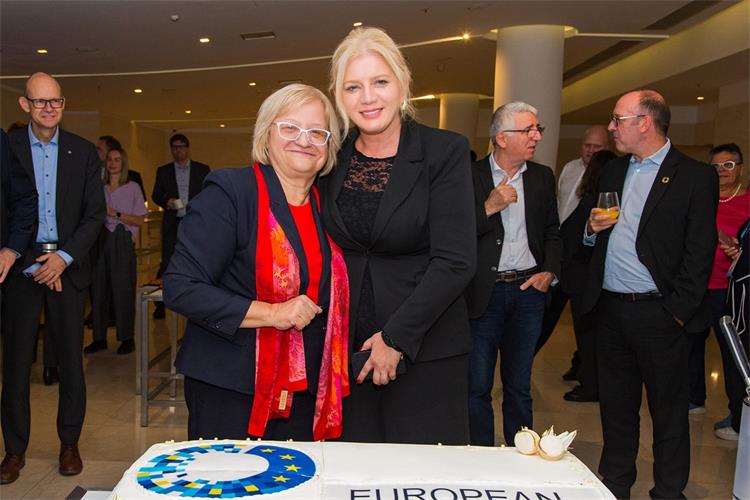- Published: 24.10.2025.
110th DGINS Conference held in Split
The Croatian Bureau of Statistics hosts an international conference of heads of European statistical offices
The 110th DGINS Conference was held in Split on 22 and 23 October 2025, organised by the Croatian Bureau of Statistics and Eurostat, on the topic “European Tourism Statistics: A Forward-Looking and Innovative Response to 21st Century User Needs”.This year’s edition of the DGINS conference was dedicated to tourism statistics, particularly in the context of sustainability, innovation, and data modernization. It brought together the heads of European statistical offices, representatives of the European Commission and the European Central Bank, as well as senior statistics representatives from OECD Statistics, UN Tourism, and other experts.
Lidija Brković, Director General of the Croatian Bureau of Statistics, gave an introductory speech and emphasised that traditional methodologies still rely on indicators such as the number of overnight stays, tourist arrivals, and accommodation capacity - indicators that are important but no longer sufficient. She further emphasised that the new generation of tourism statistics must continue to address challenges such as sustainability, climate change, digitalisation, and the impact of tourism on society.

Mariana Kotzeva, Director-General of Eurostat, thanked the Croatian Bureau of Statistics for organising this conference, as well as all those who actively participated in the development of its programme. She emphasised that organising a conference on the topic of tourism required a great deal of effort and dedication from all colleagues at Eurostat who were involved in its preparation. The topic of tourism was readily accepted, as this sector of the economy has had an increasing impact on the overall economy, sustainability, and the development of local communities in recent years.
Slavko Štefičar, Envoy of the Prime Minister of the Republic of Croatia, also delivered a welcoming speech. Valdis Dombrovskis, European Commissioner for Economy and Productivity, and Tonči Glavina, Minister of Tourism and Sport, addressed the attendees via video messages.
On the first day, three sessions were held, discussing the perspective of users, their data needs, and how they use official statistics; innovative practices and the use of alternative data sources for the development of an agile and sustainable tourism statistics system; and the valuation of the economic importance of tourism through tourism satellite accounts, their role in shaping data-driven policies, challenges in their implementation, and examples of national practices for building sustainable solutions within the European Statistical System.
On the second day, the third session on the sub-topic "Measuring the Sustainability of Tourism" continued, discussing the critical role of statistical frameworks and methodologies for measuring the sustainability of tourism, with a focus on the Statistical Framework for Measuring Sustainable Tourism (SF MST) and the challenges associated with integrating sustainability into tourism statistics. Strategies to enhance data collection, coherence, and comparability across regions and countries were also explored.
The conference was concluded with a panel discussion on the topic “Our Next Trip ... Where Do Tourism Statistics Want to Travel, How And When?”, moderated by Lidija Brković, Director General. The panel participants were Mariana Kotzeva, Director-General of Eurostat; Elena Manzanera Díaz, President of the National Statistical Institute of Spain; Marek Cierpiał-Wolan, President of Statistics Poland; and Geir Axelsen, Director-General of Statistics Norway.

The panel discussion emphasized the need to improve tourism statistics and highlighted the activities that have already being made to address them. Participants agreed that it is crucial to develop a harmonised and coordinated approach that will enable better data comparability, more efficient use of existing sources, and more timely indicators. The need for innovative methods and a better understanding of user needs was emphasised in order to achieve a balance between the resources invested and the quality of the results.
Following the DGINS Conference, a meeting of the European Statistical System Committee (ESSC) was held. The Committee is composed of the heads of the national statistical offices of the Member States of the European Union and the European Economic Area, as well as Eurostat (the Statistical Office of the European Union). The Committee considers and decides on the strategic guidelines for the development of the ESS and participates in the comitology procedure.

The 60th meeting of the European Statistical System Committee (ESSC), held on 23 and 24 October 2025 in Split, discussed the new European Commission implementing regulations on labour market statistics, labour costs and gender pay inequality, as well as the technical specifications for research on mental health and well-being in 2027. Proposals for the modernisation of business and trade statistics and for the revision of the European System of National and Regional Accounts (ESA 2010) were also discussed. The second day was also dedicated to the digitalisation of statistics, access to privately held data, the reduction of administrative burdens, and plans for future ESSC meetings.
